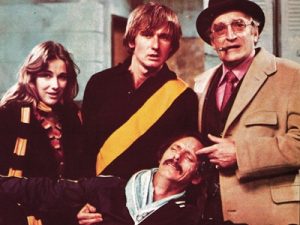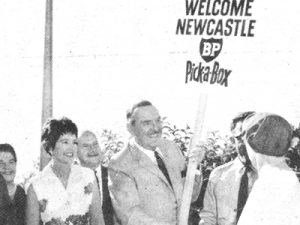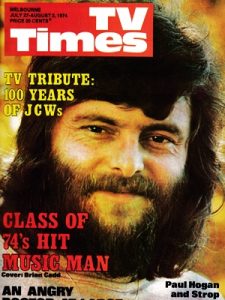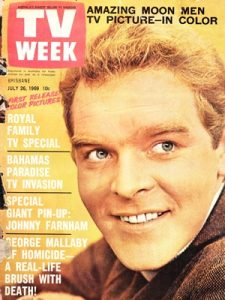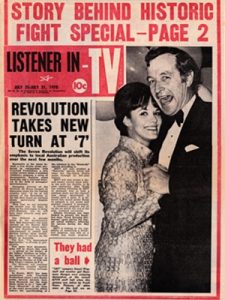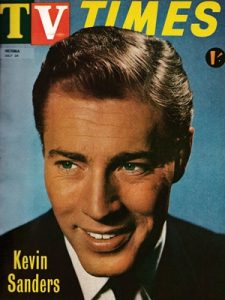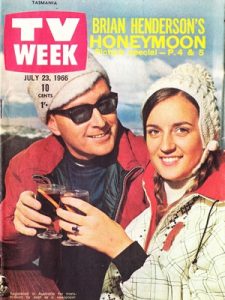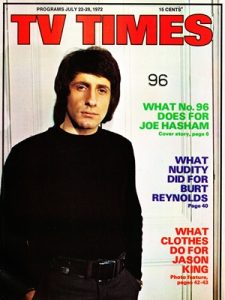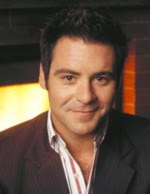 Game shows are a staple in any TV network’s diet, but this year saw an absolute gluttony on the genre as new titles were unleashed onto the viewing public.
Game shows are a staple in any TV network’s diet, but this year saw an absolute gluttony on the genre as new titles were unleashed onto the viewing public.
The game show battle started in January when Seven launched The Rich List hosted by Andrew O’Keefe (pictured), already of Deal Or No Deal fame. The US version of the program was not a huge hit, but the Australian version had more pleasing results over its limited episode run and is gearing up for another series in 2008.
Indirectly competing with The Rich List, on the same night but different timeslot, was the Nine Network‘s new offering 1 vs 100 which could perhaps be described as Who Wants To Be A Millionaire for dummies. Boasting the largest game show stage in the southern hemisphere and hosted by Nine CEO Eddie McGuire (pictured), there was obviously a lot riding on the program. But upon sampling the opening episodes, 1 vs 100 copped feedback that it was ‘dumbed down’ 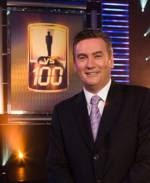 with simple questions given the weight and tension worthy of the old Mastermind. Also, McGuire’s padding out of questions with conversations with contestants and throwing to ad breaks were classic Millionaire tactics that grated on viewers.
with simple questions given the weight and tension worthy of the old Mastermind. Also, McGuire’s padding out of questions with conversations with contestants and throwing to ad breaks were classic Millionaire tactics that grated on viewers.
Figures for 1 vs 100 dropped well below the desired 1 million mark, with Nine eventually “resting” (TV-speak for “axing”) the show in September – only to replace it with a revamped Who Wants To Be A Millionaire. David Gyngell, whose return to the position of Nine CEO brought a boost to the network’s flagging morale, announced the return of Millionaire among the first of his ‘new’ program initiatives for the network. The difference with the ‘new’ Millionaire is that it would be live to air, for 90 minutes from 7.00pm every Monday, and the million dollar maximum prize-money upped to $5 million.
The relaunch of Who Wants To Be A Millionaire did not get the maximum ratings Nine may have hoped for, instead it was soundly beaten by both Seven and Ten networks. The program played out its six episodes for the series, but Nine may carefully consider if the program in its new format should live on in 2008.
Another game show launched by Nine was The Singing Bee on Sunday nights. Based on a US format, and employing the same US host Joey Fatone, The Singing Bee was studio karaoke with a big cash prize. The program didn’t start completely horrendously in the ratings but it had a fight up against Seven’s National Bingo Night.
Another format bought from the US (Australian networks seem to have a lack of being able to devise original game show formats?), National Bingo Night got off to an over-hyped start, and a strong rating result but the novelty wore off quickly. The show’s popularity was not helped by a smear campaign by Nine’s A Current Affair which made plenty about “uncovering” the game show as a supposed scam – although perhaps A Current Affair might like to divert their attention to a program on their own network, the late-night phone-in quiz The Mint, whose cryptic puzzles with seemingly illogical (or ill-explained) answers and charging viewers the right to compete seems to be a government investigation just waiting to happen.
Network Ten also entered into the game show arena with two new offerings this year – The Con Test and Are You Smarter Than A 5th Grader?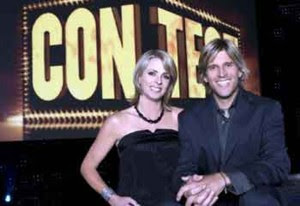 The Con Test, based on an English program, encouraged contestants to bluff their way to trick their opponents to give themselves up. Hosted by Australian Idol co-host Andrew G and Melbourne radio identity Brigitte Duclos (pictured), it only held up modest results. Ten had a little more luck with Are You Smarter Than A 5th Grader? adapted from the US and hosted by network golden boy Rove McManus. The program gave solid ratings to help Ten maintain a strong Wednesday night line-up following the series final of Thank God You’re Here.
The Con Test, based on an English program, encouraged contestants to bluff their way to trick their opponents to give themselves up. Hosted by Australian Idol co-host Andrew G and Melbourne radio identity Brigitte Duclos (pictured), it only held up modest results. Ten had a little more luck with Are You Smarter Than A 5th Grader? adapted from the US and hosted by network golden boy Rove McManus. The program gave solid ratings to help Ten maintain a strong Wednesday night line-up following the series final of Thank God You’re Here.
But it wasn’t just Ten that was quizzing kids in prime-time, even SBS got into the act with Hot Spell! A mix of the traditional spelling bee, with some game-show twists, the series hosted by Michael Tuahine (pictured) was the culmination of auditions held in schools around Australia and was screened over ten consecutive nights.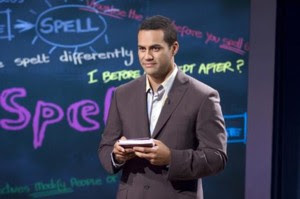 With all this game show activity in prime-time, it is easy to forget the traditional half-hour game shows are still fighting it out – with one casualty. Temptation continued in its merry way despite suggestions it was to be “rested” mid-year to make way for a five-night Millionaire format, but a last minute change by CEO David Gyngell saved Temptation‘s fate and kept it running Tuesday to Friday nights to work around his relaunched Millionaire on Mondays.
With all this game show activity in prime-time, it is easy to forget the traditional half-hour game shows are still fighting it out – with one casualty. Temptation continued in its merry way despite suggestions it was to be “rested” mid-year to make way for a five-night Millionaire format, but a last minute change by CEO David Gyngell saved Temptation‘s fate and kept it running Tuesday to Friday nights to work around his relaunched Millionaire on Mondays.
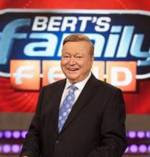 Seven’s Deal Or No Deal continued through the year, though it managed to fight off a challenge from Nine’s Bert’s Family Feud (pictured) which was axed during the year. However, Deal Or No Deal can’t rest on its laurels as Nine’s replacement program, the cheap UK Antiques Roadshow, is giving Deal a run for its money at a fraction of the cost of Bert’s Family Feud.
Seven’s Deal Or No Deal continued through the year, though it managed to fight off a challenge from Nine’s Bert’s Family Feud (pictured) which was axed during the year. However, Deal Or No Deal can’t rest on its laurels as Nine’s replacement program, the cheap UK Antiques Roadshow, is giving Deal a run for its money at a fraction of the cost of Bert’s Family Feud.
